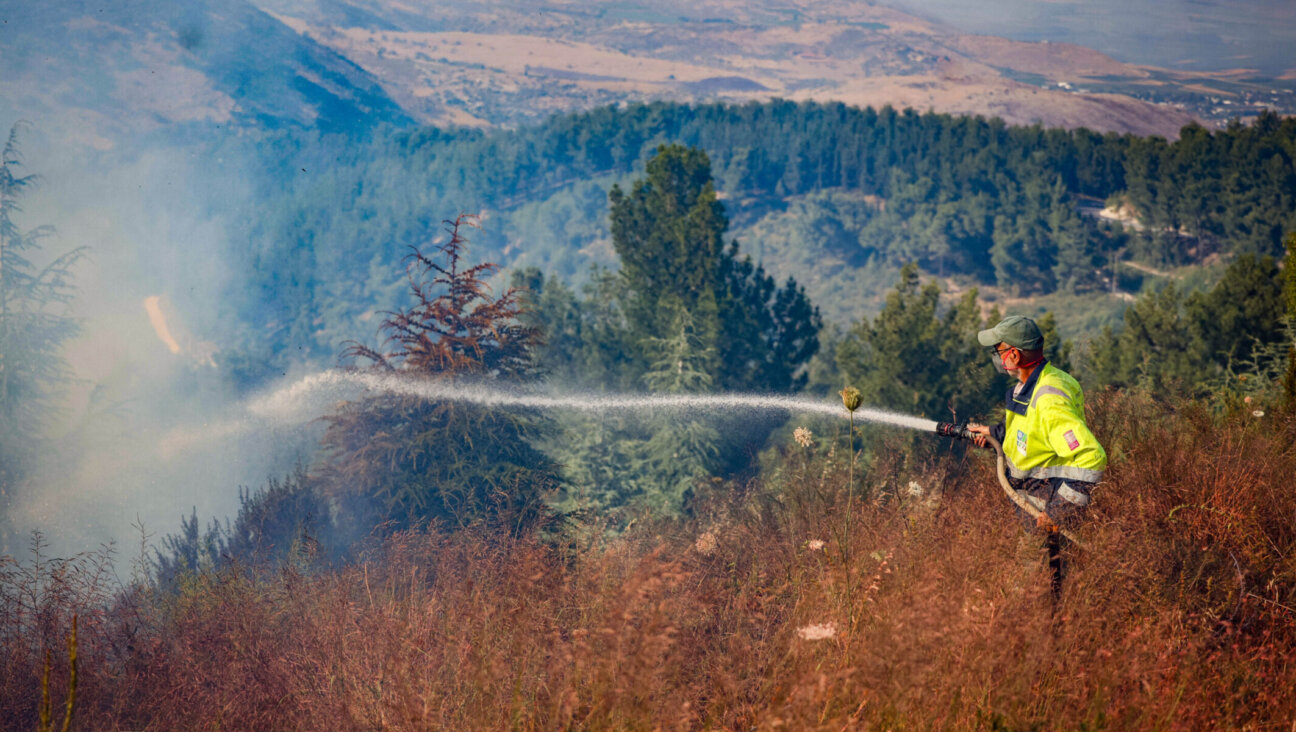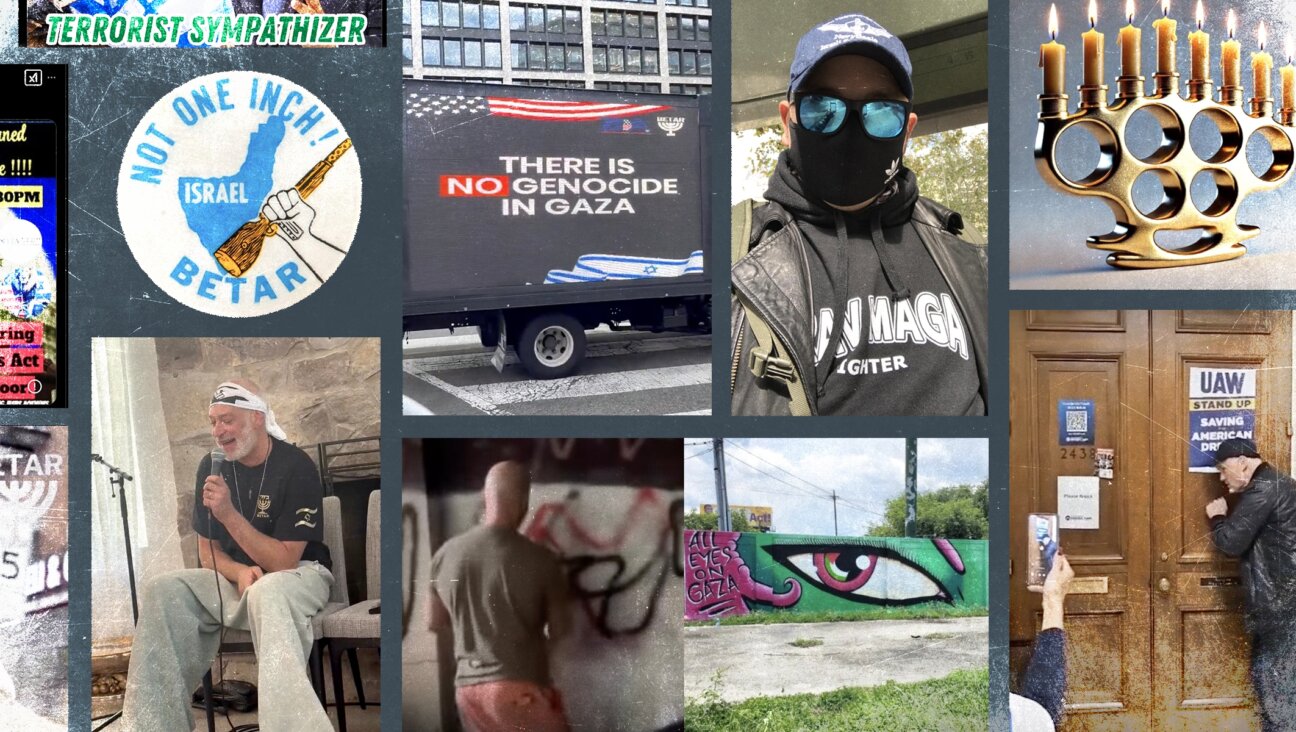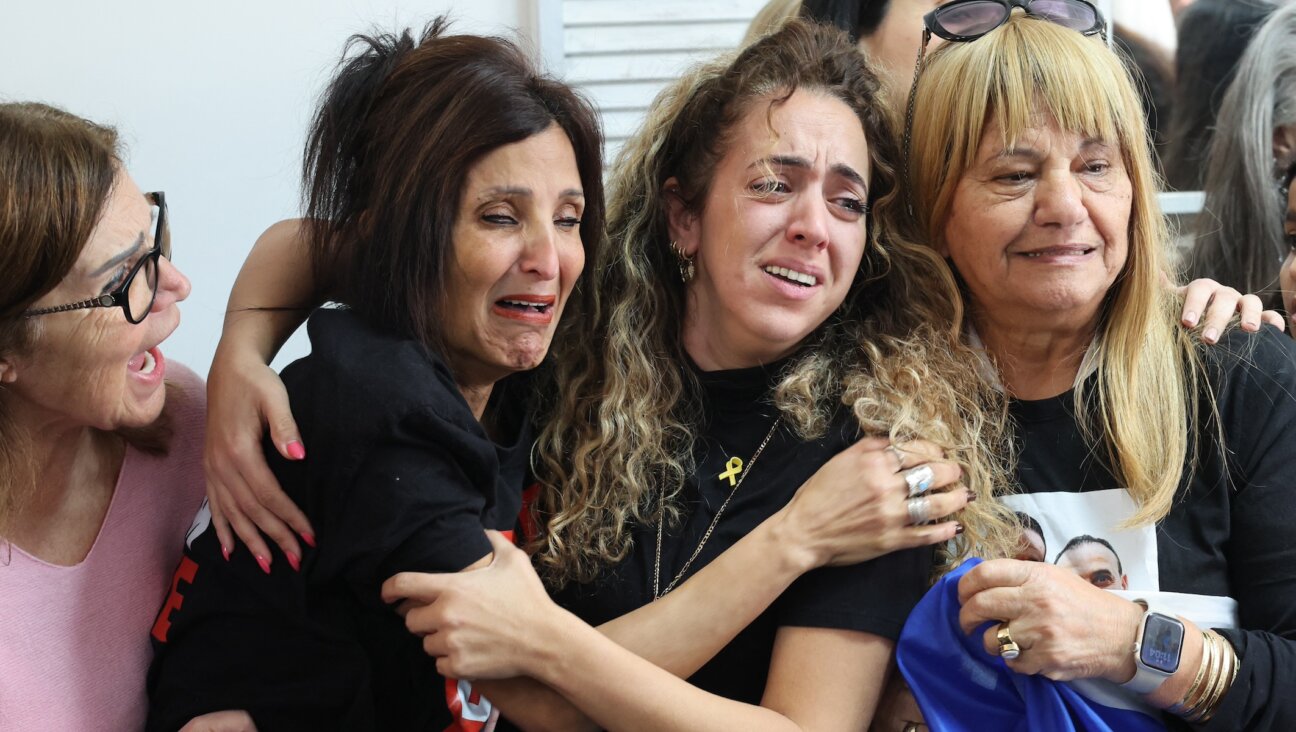African Poverty Surging on Communal Agenda
With a G-8 summit and a wave of worldwide protests shining a sudden global spotlight on African poverty, several major American Jewish organizations are taking steps to put the continent’s troubles high on the agenda of Jewish advocacy and planning in the months ahead.
The American Jewish Committee confirmed this week that it is moving to bolster its diplomatic activity and involvement in humanitarian and development issues on the continent. Separately, the Jewish Council for Public Affairs, which coordinates the policies of 12 national agencies and 123 local Jewish community-relations councils, has begun discussing strategies for local communities to tackle Africa in an ongoing way, moving beyond the sporadic crises that have captured short-lived attention.
Interest in Africa has piqued in the past year by the ethnic conflict in Darfur, which has drawn intense involvement by a spectrum of Jewish organizations. In the last two months, however, discussions in advance of this week’s G-8 meeting in Scotland have focused world attention on the continent’s broader woes. A loose coalition of international agencies, European governments and activist groups has been pressing for debt relief and increased development aid for Africa, along with measures to prevent AIDS and malaria. Jewish groups appear to be climbing on board for the more sustained trip.
“It’s now become a given that we care about what’s going on Sudan — that wasn’t a given two years ago,” said Mark Pelavin, associate director of the Religious Action Center of Reform Judaism. “There’s now an exploration of where else we should be engaged around the continent.”
Africa is the world’s poorest region, with as many as half its 1 billion people living on less than $1 a day. Nearly 5 million Africans die each year of poverty and preventable diseases, according to United Nations estimates.
Pelavin’s group and the New York-based American Jewish World Service have led Jewish communal involvement on African issues for several years. Over the past two years the groups have shared a lobbyist, Jacob Fain, who has met in recent months with staff at the U.S. Treasury and the National Security Council to discuss debt cancellation for poor African countries. The American Jewish World Service also provides close to 100 development grants in Africa.
The involvement of the better-established groups, including AJCommittee, takes this involvement up a notch. The committee’s plans for increased involvement appear to come in response to growing grassroots Jewish interest, which until now has been channeled largely through smaller organizations and piecemeal initiatives.
“We recognize the importance of devoting increased attention and resources to improve U.S.-African and Israel-African relations,” said Jason Isaacson, AJCommittee’s international affairs director. “We are continuing our efforts to intensify political contacts in a region that holds political and economical promise and resonates with our fellow citizens.”
Isaacson declined to discuss specific steps the organization is considering.
In a separate development, the World Jewish Congress announced last month that it would launch a joint program with the Vatican to combat AIDS in sub-Saharan Africa, after a meeting between WJC leaders and Pope Benedict XVI in Rome. The WJC plans to support an effort by European church officials to provide AIDS medications to African patients at a reduced cost. The congress is also helping to adapt an educational program to teach HIV-infected mothers how to avoid infecting their unborn babies. The program is focused initially on South Africa, where some 25% of the population is HIV-positive.
A meeting between WJC and Vatican officials to discuss the details of the joint initiative is to be held in coming days, and the WJC is planning a visit to South Africa to launch the pilot program.
The campaign has its skeptics. Conservatives have argued in recent weeks that Africa’s problems stem mainly from corruption and poor governance, which will not be solved by increased aid. Within the Jewish community, mainstream groups have been reluctant to divert their energies to an issue that seemed unrelated to Jewish interests.
The crisis in Darfur sparked intense interest, partly because of the specter of mass killing, evoking memories of the Holocaust. Along with some other constituencies, the Jewish community was jolted into action on Darfur last spring, during commemorations of the 10th anniversary of the genocide in Rwanda. At that time, government-backed Arab militias in Sudan were leading raids on black Muslim villages in the Western province of Darfur. Human rights activists hoped for diplomatic progress last summer, after the Bush administration labeled the massacres genocide. But the U.N. declined to intervene actively and human rights officials say the atrocities have continued, with 2.5 million people still homeless and facing an imminent threat of famine.
The American Jewish World Service helped found the Save Darfur Coalition, which now comprises more than 100 religious and international development organizations, including 40 Jewish organizations. Many of these organizations — such as the Anti-Defamation League and United Jewish Communities — have hesitated to step beyond explicitly Jewish issues in recent years, but have since helped sponsor advertisements in national newspapers and group letters to politicians.
Much of the strongest action has been at the grassroots level. Hundreds of local synagogues, schools and local Jewish groups have mobilized to provide relief and demand international action. Typical is Temple Emanu-El in Dallas, which launched a Dolls for Darfur campaign, selling dolls to raise money and awareness of the crisis. In Boston, the Jewish Community Relations Council helped to found the Massachusetts Coalition to Save Darfur, which is planning a massive vigil on July 26. This will come a week after the National Weekend of Prayer and Reflection for Darfur, organized by the Save Darfur Coalition.
Recently, grassroots groups have pressed hard for Senate passage of the Darfur Accountability Act, which would impose sanctions on the Sudanese government.
Many activists hope the relationships developed through Darfur can be applied to longer-term involvement in Africa. The coordinator for religious groups at Africa Action, a Washington-based advocacy group, said her organization is planning to press for more involvement by the 12 Jewish groups that signed a letter to the president on Darfur in May. At present, the Religious Action Center of Reform Judaism is the only Jewish organization that is a member of Africa Action’s Religious Action Network.
The mass mobilization around Sudan sparked discussions at the Jewish Council for Public Affairs June task-force meeting about how the organization should address Africa in the future. This spring, the JCPA passed a resolution calling for 100% debt relief for poor countries.
In the past, other severe conflicts have forged relationships that have proved valuable when new crises arose. In 1999, the atrocities in Kosovo led the American Jewish Joint Distribution Committee to convene the Jewish Coalition for Disaster Relief to gather humanitarian aid. When an earthquake hit Turkey later in 1999, the coalition was able to reconvene its 46 member organizations to raise money. More recently the same coalition has raised $450,000 for Darfur and $850,000 for Asian tsunami victims.
The conflict in Yugoslavia also spawned Jews Against Genocide, a New York grassroots group that has held public events recently to call attention to atrocities in Darfur and the war-torn West African nation of Sierre Leone.
“It gave us a core of people that continued to work together,” said Meryl Weis, a co-founder of Jews Against Genocide.
Many American groups involved in Sudan say they hope to work on broader African issues, but for now, the threat in Sudan is forcing them to devote any available resources to that conflict.
“We’re trying to stay focused on Darfur, because we’re afraid if we move on, we won’t finish the job there,” said Nancy Kaufman, executive director of the Jewish Community Relations Council of Greater Boston.
The same story is playing in reverse in Britain, where the Jewish community has been heavily involved in debt relief, devoting fewer resources to Darfur. Early this year, 20 major British Jewish organizations formed the Make Poverty History Jewish Coalition, largely in preparation for this week’s G-8 meeting in Scotland. They prepared educational packets on African poverty for local congregations and sent an oversized post card to Tony Blair, who chairs the G-8 this year and has vowed to put Africa at the top of its agenda. Last week, about 100 Jewish coalition members joined the pre-G-8 protests in Scotland, wearing special Make Poverty History yarmulkes.
The founders of the British Jewish coalition say there has not been as much time for Darfur, but they are hoping that they will be able to harness the current energy for future causes.
“This whole campaign has been more successful than we thought,” said Daniel Casson, director of World Jewish Aid and a co-founder of the coalition. “We’re trying to figure out what impact we can make now.”





















